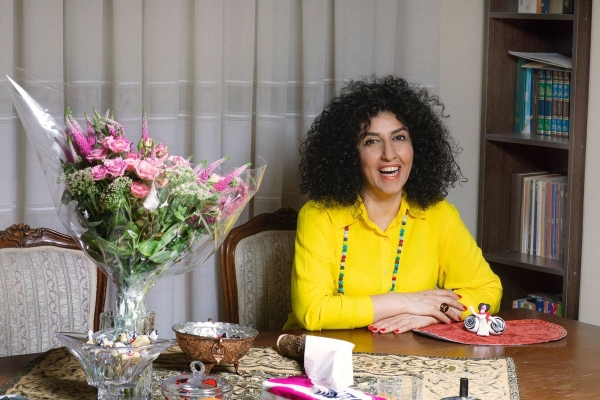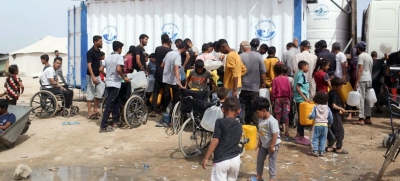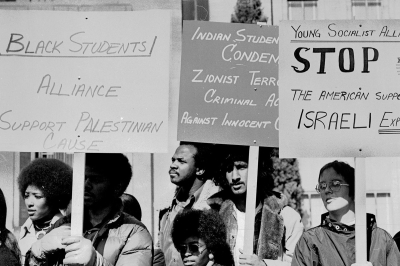Narges Mohammadi, an Iranian women’s rights and anti-death penalty advocate currently incarcerated in one of Iran’s most notorious prisons, has been awarded the 2023 Nobel Peace Prize.
Mohammadi’s win comes after a year of protest in the country following the murder of Mahsa Amini, a 22-year-old Kurdish Iranian woman who died in police custody after being detained for improperly wearing her headscarf. Though Mohammadi was behind bars during these protests and couldn’t participate directly, she has worked as an advocate for related causes for decades, and continues to document human rights abuses within prison.
Mohammadi’s win, though a significant symbolic and political move on the part of the Nobel committee, is unlikely to change Iran’s stance on the protests or its human rights violations. Nor is it likely to free Mohammadi or materially change her condition, though the chair of the Norwegian Nobel Committee Berit Reiss-Andersen said in her speech announcing the prize that she hoped the Iranian authorities would release Mohammadi so she could attend the awards ceremony in December, the Associated Press reported.
The award is both an explicit recognition of Mohammadi’s decades of work, as well as the ongoing struggle of women in Iran.
“This year’s Peace Prize also recognises the hundreds of thousands of people who, in the preceding year, have demonstrated against the theocratic regime’s policies of discrimination and oppression targeting women,” the committee wrote in a press release Friday. Iranian women who spoke with the Associated Press, like 22-year-old chemistry student Arezou Mohebi, echoed that statement, calling the prize “an award for all Iranian girls and women” and Mohammadi herself “the bravest I have ever seen.”
Mohammadi has been fighting for human rights for decades
Mohammadi, an engineer by training, has long been an active and important part of the Iranian struggle for human rights, working in particular on behalf of women and incarcerated people and against the death penalty. In 2003, she began working with the now-banned group Defenders of Human Rights Center, founded by Iran’s other Nobel Peace Prize winner, lawyer Shirin Ebadi.
Firoozeh Kashani-Sabet, a historian of the modern Middle East at the University of Pennsylvania, told Vox that within Iran, Mohammadi “is very highly respected and admired for her unflinching commitment to freedom, women’s rights, and human rights, as well as for her personal sacrifices in realizing these ideals. People in Iran are rejoicing over this prize.”
Mohammadi was first arrested in 2011 for her work advocating for incarcerated human rights activists and their families; while out on bail in 2015, she was again arrested and imprisoned for her campaigning against Iran’s use of the death penalty. In Iran, the death penalty is often used for drug-related offenses or crimes like blasphemy or sowing “corruption on earth” — a charge which can be applied to a variety of activities, like protesting the government or being LGBTQ.
Last year there were around 580 executions in Iran, according to UN Human Rights Chief Volker Türk. Executions have continued apace in 2023; many of those were for drug-related offenses, and many of those executed came from minority populations, according to UN data. “In Iran, authorities use the death penalty and execution as a tool of political repression against protesters, dissidents and minorities” after subjecting the accused to show trials, according to a report this year by a UN body of experts.
This is true, too, for the Iranians protesting over the last year. After Amini’s death in September 2022, Iranians of all ages, ethnic groups, and sectors of society engaged in mass demonstrations across the country against the government. Thousands of people flooded the streets night after night — often peacefully, with women whipping off their hijabs and lighting them on fire, or cutting their hair in not just a show of solidarity with Amini, but also an expression of broader economic frustrations and outrage with political repression.
This was a woman-led movement —particularly meaningful in a society which specifically restricts women’s access to basic rights like education, jobs, and participation in public life based on whether they comply with compulsory hijab laws, as a June Human Rights Watch report explains.
“It’s really touching and kind of unprecedented even, perhaps, globally, this kind of feminist angle, and it is real,” Borzou Daragahi, an Iranian-American journalist, told Vox in November at the height of the protests. “The men supporting the women, the schoolgirls going out and protesting by day, the schoolboys going out and rioting against the police at night, people backing each other up, people cheering on the women as they take off their hijabs and so on. This whole feminist angle of it is quite singular, for a political revolution in any country.”
That movement came to be known by its chants of “Woman-Life-Freedom,” and, though Amini’s death ignited it, it built on years — and even decades — of protest and feminist activism by people like Mohammadi. And after years of protest movements including in 2009 and 2019, Woman-Life-Freedom was one of the most serious challenges to regime power since the 1979 revolution.
Iran’s Basij, a paramilitary police force under the Islamic Revolutionary Guard Corps (IRGC), cracked down on the uprising, blinding hundreds of protesters with rubber bullets and killing and injuring others when they fired on crowds with lethal force. Ultimately, Iran’s government detained about 20,000 protesters and sentenced many to death. At least 209 people had been executed by May of this year, according to UN reports.
Though Mohammadi has been in and out of prison since 2015, she has continued to organize while incarcerated, fighting against inhumane conditions, including allegations of systematic torture and sexual violence. Mohammadi also participated in the Woman-Life-Freedom mass protests in her own way, according to the Norwegian Nobel Committee, expressing her support for activists on the street and organizing solidarity actions among her fellow prisoners.
That, however, led to more brutal crackdowns from prison authorities; Mohammadi was barred from receiving phone calls or visitors. She has not seen her husband, Taghi Rahmani, who lives in exile in Paris with their 16-year-old twins, in 11 years.
“The global support and recognition of my human rights advocacy makes me more resolved, more responsible, more passionate and more hopeful,” Mohammadi wrote in a statement to the New York Times. “I also hope this recognition makes Iranians protesting for change stronger and more organized. Victory is near.”
However, it’s possible that Mohammadi’s win and the international recognition for her work will bring more strife and more crackdowns both for her and for Iranian society at large. Regime-linked news agencies dismissed the prize; The Islamic Republic News Agency stated it had become a tool “to satisfy the political desires of the Western countries” and Fars claimed it honored someone who “persisted in creating tension and unrest and falsely claimed that she was beaten in prison.”
Over the past year, the protests have garnered less media attention, and the regime has cracked down on society by purging academics from universities and arresting activists and journalists. Although the protests did not topple the government, it does seem to have caused an enduring fracture between the regime and society. That’s partly a result of the multiple crises — economic, political, and social — that Iran is currently facing, but it also speaks to the strength of the protest movement.
Now, Kashani-Sabet said, “Mohammadi’s Nobel Prize will keep the embers of the Woman, Life, Freedom movement burning and alert the world that Iranian women and the Iranian people have not abandoned their resolve to usher in a free and tolerant Iran.”






